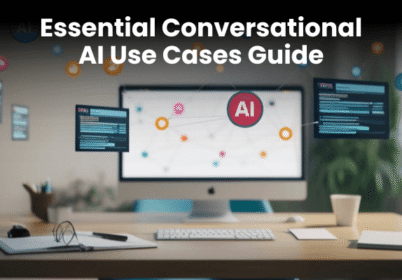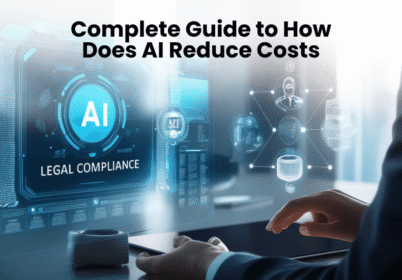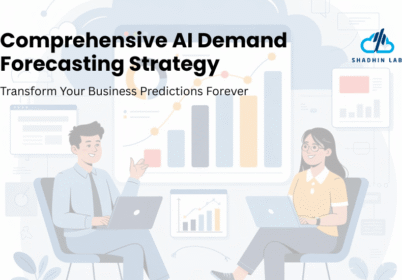How to Learn AI Skills from Scratch: A Beginner’s Guide

Table of Contents
The demand for artificial intelligence skills is rising exponentially across virtually every industry sector today. Organizations increasingly seek professionals who can leverage AI technologies to solve complex problems and drive innovation. How to learn AI skills has become a critical question for developers, data analysts, marketers, product managers, and business leaders alike. AI literacy now represents a fundamental competency rather than an optional specialization in our rapidly evolving digital landscape. This comprehensive guide offers a structured roadmap to mastering artificial intelligence skills regardless of your current experience level. How to learn AI skills effectively requires understanding both technical foundations and practical applications across various domains. The journey involves progressive skill development through structured learning paths, hands-on projects, and continuous experimentation.
Table of Contents
Why AI Skills Are Crucial in 2025 and Beyond
Artificial intelligence continues reshaping entire industries at an unprecedented pace, creating both opportunities and disruptions. The World Economic Forum projects that AI will generate 97 million new jobs by 2025 while simultaneously displacing 85 million existing roles. This massive workforce transformation demands widespread AI literacy across organizational hierarchies and functional departments. Companies increasingly evaluate candidates based on their ability to work alongside AI systems or develop AI-powered solutions. The skills gap remains substantial, with demand far outpacing the supply of qualified AI professionals in most markets worldwide.
Organizations report significant productivity gains when implementing AI effectively, creating competitive advantages for early adopters. The economic impact extends beyond traditional tech sectors into healthcare, finance, manufacturing, retail, and creative industries. AI skills command substantial salary premiums, with AI specialists earning 20-50% more than comparable roles without AI expertise. The technology continues evolving rapidly, making continuous learning essential for maintaining relevance in this dynamic field.
Understanding AI fundamentals helps professionals identify valuable implementation opportunities within their specific domains. Ethical considerations surrounding AI deployment further necessitate broad literacy to ensure responsible technology use. The future workforce will likely divide between those who can work effectively with AI and those at risk of displacement. Learning these skills represents both career insurance and advancement opportunity in the coming decades.
Core AI Skills to Focus On
Developing AI competency requires mastering several interconnected skill categories that build upon each other:

- Programming fundamentals serve as the essential foundation, with Python emerging as the dominant language in AI development
- Data manipulation abilities enable professionals to prepare, clean, and transform information for machine learning applications
- Statistical knowledge provides the theoretical framework for understanding how algorithms identify patterns and make predictions
- Mathematics concepts, particularly linear algebra and calculus, underpin the computational methods driving modern AI systems
- Machine learning techniques form the practical application layer where algorithms learn from data to make predictions
- Deep learning represents an advanced subset focusing on neural networks that mimic human brain functions
Natural language processing enables machines to understand, interpret, and generate human language in meaningful ways. Computer vision skills allow systems to interpret and analyze visual information from the physical world. Ethical AI development ensures systems operate fairly without perpetuating biases or causing unintended harm. Domain expertise combines AI technical knowledge with specific industry applications for maximum impact. Cloud computing facilitates the deployment and scaling of AI solutions across distributed environments. Data visualization helps communicate complex findings to stakeholders through intuitive graphical representations.
Beginner-Friendly Learning Paths
Starting your AI journey requires a structured approach that builds knowledge progressively without causing overwhelm. Begin with basic programming concepts in Python, focusing on syntax, data structures, and fundamental operations. Dedicate time to understanding statistical principles including probability, distributions, and hypothesis testing. Explore introductory mathematics for machine learning, particularly linear algebra and calculus fundamentals. Progress to data manipulation using libraries like Pandas and NumPy to prepare information for analysis.

The beginner’s path should follow these steps:
• Move toward basic machine learning concepts including supervised and unsupervised learning approaches
• Implement simple algorithms such as linear regression, decision trees, and k-means clustering
• Gradually advance to more complex techniques like random forests and support vector machines
• Supplement theoretical learning with guided projects that apply concepts to real-world problems
Consider structured online courses from platforms like Coursera, edX, or Udacity for cohesive learning. Join AI communities where beginners can ask questions and receive guidance from experienced practitioners. Create a consistent study schedule allocating specific time blocks for different skill areas. Utilize free resources including YouTube tutorials, documentation, and open-source learning materials. Focus on understanding core concepts thoroughly before advancing to more specialized topics. Track your progress through completed projects and assessments to maintain motivation.
Best Online Platforms to Learn AI
The digital learning landscape offers numerous options for developing artificial intelligence skills through structured courses. Coursera partners with leading universities to deliver comprehensive specializations like Andrew Ng’s Machine Learning course. Udacity provides Nanodegree programs with project-based learning and industry mentorship for practical skill development. edX hosts university-created content including MicroMasters programs in artificial intelligence from institutions like MIT. DataCamp offers interactive coding exercises specifically designed for data science and machine learning practitioners. Fast.ai provides free, practical deep learning courses focusing on implementation before theory for quicker results.
Google’s Machine Learning Crash Course delivers concise, application-focused training from industry experts. Kaggle combines learning resources with competitions where students apply skills to real datasets. DeepLearning.AI creates specialized courses on neural networks, computer vision, and natural language processing. LinkedIn Learning offers shorter, targeted courses ideal for professionals seeking specific skill development. YouTube channels like StatQuest and 3Blue1Brown explain complex concepts through accessible visualizations. University open courseware from Stanford, MIT, and others provides academic-quality instruction without enrollment requirements.
| Platform | Best For | Price Range | Credential Value | Time Commitment |
| Coursera | Comprehensive foundations | Free-$99/month | High (university certificates) | 3-6 months per specialization |
| Udacity | Project-based learning | $399/month | Medium-high (industry recognized) | 3-4 months per Nanodegree |
| Fast.ai | Practical implementation | Free | Low (no formal certification) | 7 weeks per course |
| DeepLearning.AI | Specialized AI topics | $49/month | Medium (Andrew Ng affiliation) | 1-3 months per specialization |
| AI Bootcamps | Career transition | $10,000-20,000 | Medium-high (job placement) | 3-6 months full-time |
Building Projects to Practice AI Skills
Practical application through projects represents the most effective method for cementing theoretical knowledge in artificial intelligence. Begin with guided tutorials that walk through complete implementations before attempting independent work. Start simple with projects like sentiment analysis on movie reviews or basic image classification tasks. Progressively increase complexity as your skills develop through consistent practice and experimentation.

Consider these project ideas to build your portfolio:
• Create a personal recommendation system using collaborative filtering techniques for music or movies
• Build a predictive maintenance model using sensor data to forecast equipment failures before occurrence
• Develop a natural language processing application that summarizes long articles automatically
• Implement computer vision projects like object detection in images or facial recognition systems
Create a chatbot using modern language models to handle customer service inquiries. Explore reinforcement learning through simple game-playing agents that improve through experience. Contribute to open-source AI projects where you can learn from experienced developers. Document your process thoroughly, including challenges faced and solutions implemented for each project. Publish your work on GitHub with clear documentation to demonstrate skills to potential employers. Join AI hackathons where you can apply skills under time constraints while networking with peers. Focus on solving real problems that interest you personally to maintain motivation throughout development.
Specializations Within AI to Explore
As you progress beyond fundamentals, various specialized paths emerge within the artificial intelligence landscape. Computer vision focuses on enabling machines to interpret visual information from images and videos. This specialty applies to autonomous vehicles, medical imaging, retail analytics, and manufacturing quality control. Natural language processing concentrates on human language understanding, powering applications like translation, sentiment analysis, and conversational interfaces. Reinforcement learning develops systems that learn optimal behaviors through trial-and-error interactions with environments. This approach drives advances in robotics, game AI, and autonomous systems optimization.
Generative AI creates new content including images, text, music, and synthetic data through models like GANs and diffusion models. Explainable AI focuses on creating transparent systems where decisions can be understood and trusted by human operators. Time series analysis specializes in sequential data prediction for financial forecasting, demand planning, and anomaly detection. Robotics combines AI with physical systems to create machines that interact intelligently with the physical world. Edge AI deploys models directly on devices rather than cloud infrastructure for privacy, latency, and connectivity benefits. AI ethics examines the societal implications of artificial intelligence systems and develops frameworks for responsible deployment.
Tools and Libraries to Learn
Mastering the essential toolkit for AI development accelerates your ability to implement solutions effectively:
- Python serves as the primary programming language with its extensive ecosystem of data science libraries
• NumPy provides fundamental array operations and mathematical functions necessary for numerical computing
• Pandas enables efficient data manipulation, cleaning, and analysis through its DataFrame structure
• Scikit-learn offers implementation of common machine learning algorithms with consistent, well-documented interfaces
• TensorFlow and PyTorch represent the leading deep learning frameworks for neural network development and deployment
• Keras provides a high-level API for rapid prototyping of deep learning models with minimal code
Matplotlib and Seaborn create visualizations to understand data distributions and model performance metrics. Jupyter Notebooks facilitate interactive development with combined code, visualization, and documentation capabilities. Git enables version control for tracking changes and collaborating on AI projects effectively. Docker containerizes applications to ensure consistent environments across development and production systems. Cloud platforms like AWS, Google Cloud, and Azure provide scalable infrastructure for training and deploying models. Hugging Face Transformers offers pre-trained language models and tools for natural language processing tasks.
| Tool/Library | Primary Purpose | Difficulty Level | When to Learn |
| Python | Foundation programming | Beginner | Immediately |
| NumPy/Pandas | Data manipulation | Beginner | After basic Python |
| Scikit-learn | Traditional ML algorithms | Intermediate | After data manipulation |
| TensorFlow/PyTorch | Deep learning | Advanced | After ML fundamentals |
| Jupyter Notebooks | Interactive development | Beginner | Alongside Python |
| Git | Version control | Beginner | Early in learning journey |
| Docker | Environment management | Intermediate | Before deployment projects |
| Cloud ML Services | Scalable deployment | Advanced | After local implementation |
Tips for Staying Consistent and Motivated
Maintaining momentum throughout your AI learning journey requires deliberate strategies to overcome inevitable challenges:

- Establish specific, measurable goals with clear timelines rather than vague aspirations about learning AI
- Break large learning objectives into smaller weekly tasks that provide regular accomplishment experiences
- Join online communities like Reddit’s r/MachineLearning or Discord groups where peers share resources and support
- Find an accountability partner who shares similar learning goals to maintain mutual commitment
- Participate in AI competitions on platforms like Kaggle to apply skills in structured challenges
Create a dedicated learning environment free from distractions during your scheduled study times. Follow AI practitioners on Twitter, LinkedIn, and YouTube to maintain inspiration and awareness. Celebrate small victories along your learning path to reinforce positive associations with the process. Connect theoretical concepts to real-world applications that align with your personal interests. Teach concepts to others through blog posts or study groups to solidify your understanding. Track your progress visually using tools like GitHub contribution graphs or learning journals. Schedule regular review sessions to reinforce previously learned material before it fades.
Conclusion
The journey to mastering artificial intelligence skills represents a significant investment that yields substantial returns in career opportunities and problem-solving capabilities. How to learn AI skills effectively involves selecting appropriate learning paths aligned with your background and career objectives. Maintaining consistent hands-on practice through projects proves essential for transforming theoretical knowledge into practical capabilities. The field continues evolving rapidly, making continuous experimentation and learning necessary for long-term success. Building a strong foundation in programming, mathematics, and statistics creates the necessary platform for specialized knowledge. Community participation accelerates learning through shared resources, feedback, and collaborative problem-solving opportunities. Remember that AI literacy develops progressively through deliberate practice rather than passive consumption of educational content. The most successful practitioners combine structured learning with curiosity-driven exploration of emerging techniques and applications. Your learning approach should balance breadth across AI fundamentals with depth in specialized areas matching your interests. How to learn AI skills ultimately becomes a personalized journey reflecting your unique background, goals, and learning preferences.
Frequently Asked Questions
Do I need advanced mathematics to learn AI?
While calculus and linear algebra help with understanding algorithms deeply, many practical AI skills can be developed with basic mathematics knowledge. Start with foundational programming and gradually build mathematical understanding as needed for specific applications. Various resources now teach machine learning concepts using visual and intuitive approaches rather than purely mathematical derivations.
How long does it take to learn AI skills?
The timeline varies based on prior experience, learning intensity, and specific goals. Basic proficiency typically requires 3-6 months of consistent study. Developing professional-level expertise generally takes 1-2 years of dedicated learning and project implementation. The field requires continuous learning regardless of experience level due to rapid technological advancement.
Can I learn AI without a technical background?
Yes, many successful AI practitioners transition from non-technical fields. The learning curve may be steeper initially, but structured courses designed for beginners provide accessible entry points. Start with programming fundamentals before advancing to AI-specific concepts. Your domain expertise from previous experience often provides valuable context for applying AI effectively.
Which AI specialization has the best career prospects?
Currently, natural language processing, computer vision, and generative AI show particularly strong demand. However, the optimal specialization depends on your interests and industry focus. Healthcare AI, financial applications, and autonomous systems all present substantial opportunities. The most valuable professionals often combine AI technical skills with specific domain expertise.
Is it better to learn through university courses or self-study?
Both approaches offer distinct advantages. University programs provide structured learning, credentials, and networking opportunities. Self-study offers flexibility, cost-effectiveness, and the ability to focus on practical applications immediately. Many successful practitioners combine formal education elements with self-directed learning and project-based experience. The best choice depends on your learning style, resources, and career objectives.
Shaif Azad
Related Post
Conversational AI Use Cases That Drive Revenue
Are you frequently considering how technology could revolutionize your business operations? Conversational AI use cases are...
How Does AI Reduce Costs? A Guide to Business Cost Optimization
Are you lying awake wondering how your business can survive rising operational costs? Have you watched...
How AI Improves Demand Forecasting Accuracy and Decision-Making
Are you tired of watching your inventory costs spiral out of control while customers walk away...




